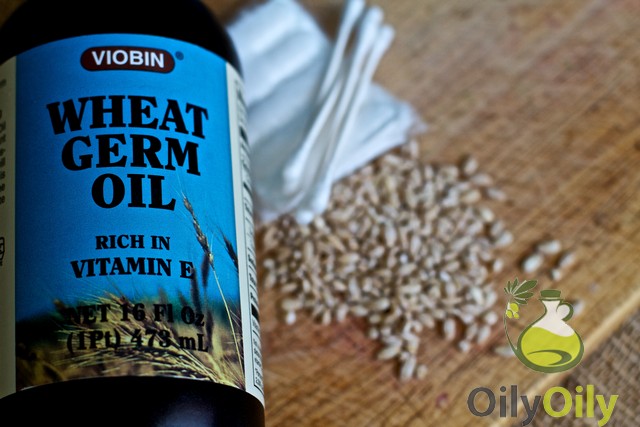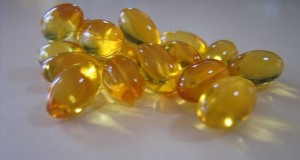
Sometimes vets recommend wheat germ oil for dogs. Many humans know about the positive impact of wheat germ oil on their health. Dogs benefit from the nutrients of the oil as well. The most powerful of them are Vitamin E and essential fatty acids omega-3&6. Dogs with some immune or inflammatory diseases and coat problems experience the greatest need for these nutrients.
Wheat germ oil for a dog’s skin and coat
According to wheat germ oil nutrition profile wheat germ oil has the highest content of vitamin E of any natural food, good amount of omega-6 (56%) and some omega-3 fatty acids, according to Wikipedia. This fact determines the treating effect of the oil on a dog’s skin and coat. You can add the oil to your dog’s daily feed or apply it topically.
SEE ALSO: Safflower Oil for Dogs: Is it Necessary?
Regular ingestion of wheat germ by a dog results in several improvements of skin condition, according to the articles “Vitamin E for Dogs” by Rachel Schwartz and “Giving Omega 3&6 Fatty Acids to Your Pet”:
- strengthening skin tissues, what makes a pet tolerate cold weather better;
- anti-inflammatory activity against some skin disorders (i.e., flea allergy dermatitis), redness and itchiness;
- promoting shining coat and skin elasticity;
- lessening a dog’s susceptibility to mite infestation.
External treating with wheat germ oil nourishes and moisturizes a dog’s skin and coat; helps heal small cuts and irritations. It is also good on chapped paws and ears.
YOU MIGHT ALSO LIKE: Palm Oil for Parrots – How to Give
Wheat germ oil for a dog’s health benefits
Due to Vitamin E and Omega 3&6 fatty acids wheat germ oil contributes to the normal growth of the body cells, functioning and regeneration of nerves and muscles. It will provide some relief for gastrointestinal parasitic infections (worms). Read also about wheat germ oil benefits for humans.
Omega-6 especially helps fight chronic illness (cancer, FIP, FIV), infections and skin dryness. Omega-3 controls inflammation, benefits the heart and kidneys, improves mood and increases trainability. It is the best choice for pets with inflammatory (glomerulonephritis, arthritis) and auto-immune (rheumatoid arthritis, pemphigus) conditions, with allergy (flea allergy dermatitis). Vitamin E enhances the activity of fatty acids due to its antioxidant properties.
Usually the recommended dosage of the oil is ½ teaspoon for each 10 pounds of a dog’s body weight. However, you should always consult your vet before beginning the oral treatment. The excess amount of fatty acids may cause diarrhea. Be also aware of the allergy to wheat that many dogs have.
 Oilypedia.com – Benefits And Uses Of Supplemental and Essential Oils
Oilypedia.com – Benefits And Uses Of Supplemental and Essential Oils 


